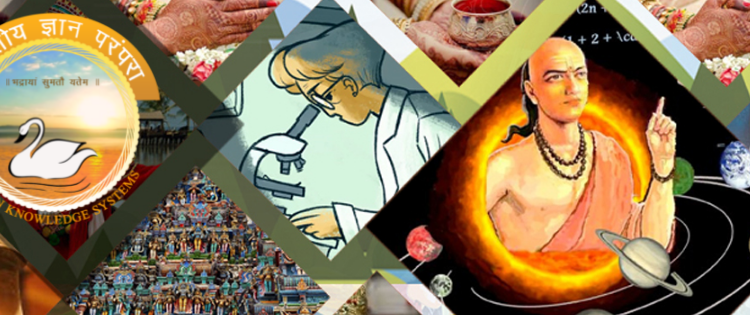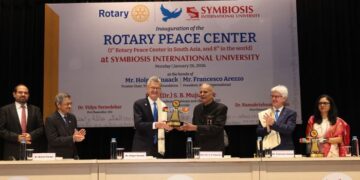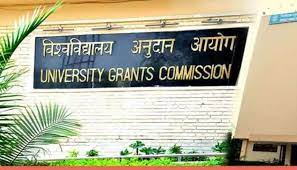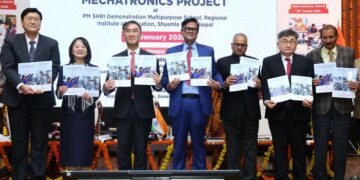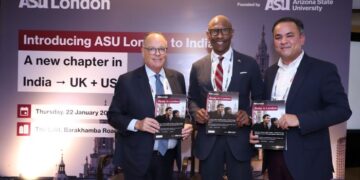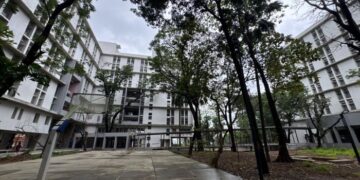The Indian Knowledge System (IKS) Division of the Ministry of Education at All India Council for Technical Education (AICTE) has accepted 13 proposals to set up IKS Centres and 21 research proposals aimed at rejuvenating IKS research across the country. The IKS Division got 120 proposals from institutions across the country to set up IKS Centres and after rigorous peer review of the proposals, 13 were selected for funding.
The selected IKS Centres will cover a wide range of areas such as Ayurveda, Darshanas, Kalaripayattu, Dance Traditions, Engineering and Technology, Architecture, Literature, Vastu Vidya, Food Traditions of Northeast India, Tribal Knowledge Base, and Education. The proposals will be funded up to ₹ 40 Lakhs over two years.
The AICTE also received 361 research proposals from institutions throughout the country but after a rigorous peer review of the proposals, 14 proposals were selected for funding in six areas – Mathematics and Astronomy, Metallurgy and Material Science and Technology, Chemical Science and Technology, Health, Wellness, and Consciousness studies, Political and Economic Thought, Economics and Foreign Policy, and Arts and Culture.Additionally, seven proposals were selected as IKS research proposals from the center applications. The proposals will be funded up to ₹ 20 Lakhs over two years. The grants will encourage original, serious, and deep scholarly research in the IKS.
Congratulating the winners, Prof. Anil Sahashrabudhe, Chairman, AICTE, said: “I must congratulate all the universities, colleges and faculty members for making the cut. The grand vision for the IKS Division of the Ministry of Education at AICTE is to initiate a process of training generations of scholars who will show society, the ‘Indian way’ of being, knowing, and doing things. If we want to become the Knowledge Leader in this century and become once again the ‘Vishswavaguru’, we must regain a comprehensive knowledge of our heritage and demonstrate the ‘Indian way’ of acting to the entire world.”
The main objective of these initiatives is to promote research, education, and outreach in the field of IKS at various levels by providing opportunities to scholars and institutions working in related areas to institutionalise IKS research and education.
Selected IKS Center Proposals
| S. NO | IKS Center Name | Institution |
| 1 | Center for Excellence in IKS-Chanakya University | Chanakya University |
| 2 | Center for Ancient History and Culture | Jain University, Bengaluru |
| 3 | IKS Center for Kalaripayattu and Siddhar Tradition | Trinity College of Engineering, Thiruvananthapuram |
| 4 | Noopura Bhramari, Bengaluru | Noopura Bhramari (R.) |
| 5 | Samvit Research Foundation | Samvit Research Foundation |
| 6 | IKS at IITBHU Vararanasi | IITBHU Varanasi |
| 7 | IIT Madras Centre for Indian Knowledge Systems | IIT Madras |
| 8 | Bharatiya Darshan Kavikulaguru Kalidas Sanskrit University | Kavikulaguru Kalidas Sanskrit University, Ramtek |
| 9 | Vastuvidya gurukulam | Department of culture, Kerala Government |
| 10 | AMRITA IKS Centre for Ayurveda, Vyakarana and Darshana | Amrita Vishwa Vidyapeetham |
| 11 | Sampurnanand Sanskrit University IKS Center | Sampurnanand Sanskrit University, Varanasi |
| 12 | CTKI –Center for Traditional Knowledge and Informatics | Trans Disciplinary Institute for Health Sciences |
| 13 | Center for Indian Knowledge Systems- With Special Referene to North East Studies | Assam University, Silchar |
Table 2. Selected Research Proposals
| S. No | Project Title | PI Name |
| 1 | Demarcation of Ramakatha through Samvaada | Dr. M.V.Vishwanath |
| 2 | Production of coloured cotton using ancient chemical formulations taken from the Sanskrit text Vishvavallabha | Dr. Sharatkumar Variyar |
| 3 | Investigation of traditional iron monuments in the central India and understanding their metallurgical origins | Eswara Prasad Korimilli |
| 4 | Development of Fe-based composite materials mimicking Delhi iron pillars structure | Dr. Santosh S. Hosmani |
| 5 | An indepth study oriented towards rejuvanation of traditional Sanskrit purana katha akhyana traditions of Kerala Pathakam and Chakyar koothu | Sreekanth V |
| 6 | Demonstration and Reproduction with Scientific Validation of some Ceramic Materials Knowledge System of Ancient-India | Prof. Rajiv Prakash |
| 7 | A study and adaption of ancient Indian alloy processing and metallurgical technologies for self-healing and gradient structure applications | Dr. Somashekara M A |
| 8 | Development and characterization of novel metallic Vajra Lep coating | Dr. Vinod Kumar |
| 9 | Mathematical modelling and Investigation of vibration and sound characteristics of Indian bowed stringed musical instruments | Dr Ashok Kumar Mandal |
| 10 | Correlation studies of copper artifacts (2500-200 BCE) from Varanasi region and copper mining and smelting in tribal areas of Singhbhum | Chandan Upadhyay |
| 11 | Hita and Sukha Ayu Wellbeing Wellness and Happiness Index | Dr. Mala Kapadia |
| 12 | Nyanjanam Indian Logic Assistance Tool | Dr. Munish Kumar Mishra |
| 13 | Yoga and Ayurveda Knowledge Engine based Wellness Technology with Wearable and Mobile app | Adinarayanan V |
| 14 | A Survey of Water Resources of Vidarbha Region Based on Indian Dakargala System | Prof Prasad Gokhale |
| 15 | Center for shaastric studies In law | Prof. (Dr.) Himanshu Pandey |
| 16 | NIAS IKS Centre on Mathematics, Computation and Information Science | Shailaja D Sharma |
| 17 | Siksha O Anusandhan IKS Center | Nachiketa Khamari Sharma |
| 18 | Early Science Technology Engineering Education and Mathematics ESTEEM of India Research Center | Ashish Karn |
| 19 | IKS Center for Avadhanakala and Consciousness Studies, Rishihood University | Sampadananda Mishra |
| 20 | Dharana- IKS Centre at REVA University | Dr. Vidya Kumari S |
| 21 | In vitro evaluation of Antioxidant free radical scavenging activity and Anti Proliferative properties of some indigenous Ayurveda medicinal plants used by selected Tribes groups of Andhra Pradesh | Prof. T V Kattimani |


